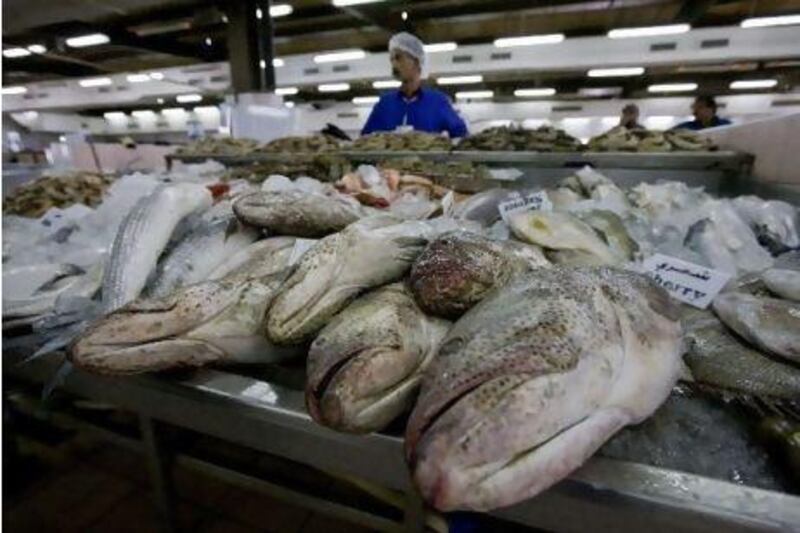ABU DHABI // The Emirates Wildlife Society wants all food outlets to introduce labels by 2014 to increase awareness of overfishing.
"We're hoping eco-labelling will help change consumer habits," said Darren Hiltz, the project leader of sustainable fisheries at Emirates Wildlife Society - World Wildlife Fund.
"All retail outlets and restaurants should be promoting this if they want to be part of the solution and make a difference."
There has been a severe decline in global fish stocks - more than 80 per cent in the past 30 years - and 60 per cent of the total catch is made up of overfished species.
In the UAE, catches of hammour and kingfish are seven times over sustainable levels, the society says. Since 1978, the total decline in stock of some species that live close to the seabed is 95 per cent.
"There is higher demand for fish due to an increase in population, which leads to greater fishing efforts and overfishing," Mr Hiltz said.
The Environment Agency- Abu Dhabi says the UAE produced 30,000 tonnes of fish in 1960. By 2002, production had increased to 100,000 tonnes.
In Kuwait, the decline in fish stocks has become so severe that in July the government considered a two-year ban on all fishing in the country's waters.
"It's common knowledge that on a global scale, if we continue fishing the way we're fishing there will be no more fishery within the next three decades," said Mr Hiltz.
"We must educate people about overfishing, with an emphasis on the hammour."
The organisation wants to encourage residents to buy more sustainable species, such as fascar and jesh, and believes that can be achieved through its eco-labels.
Based on scientific data from the Government, the labels are available in a limited number of supermarkets but the hope is to spread them to all food outlets.
"They're available at LuLu Hypermarkets in Abu Dhabi, for instance, but not LuLu in Dubai or Fujairah," Mr Hiltz said. "It'll take time to move it forward."
In 2009, 66 per cent of residents said they ate fish at least once a week.
"Compared to other nationalities, Emiratis tend to eat fish much more frequently," Mr Hiltz said. "Only 27 per cent of residents are aware that overfishing is a problem in the UAE."
Seventy per cent of Emiratis say they eat fish several times a week. Among those, 61 per cent recognised hammour was overfished, 62 per cent said sustainability was important when choosing fish and 70 per cent wished to see eco-labels.
"Retailers must eco-label their fish," Mr Hiltz said.
He explained that further research was needed.
"Our next step is a socio-economic survey, which we need to understand what the fishery means to the local population and how dependent they are on it."
But the association needs funding to proceed with the venture. It is also increasing public awareness through its Choose Widely campaign, which it plans to further develop.
"We have a lack of knowledge and understanding of the fish coming into the country and being exported out, and what fish are wild and what fish are farmed," Mr Hiltz said.
He added that the society was working closely with the Government to find a way to retrieve such data.
"You need that to help your local fishery."





